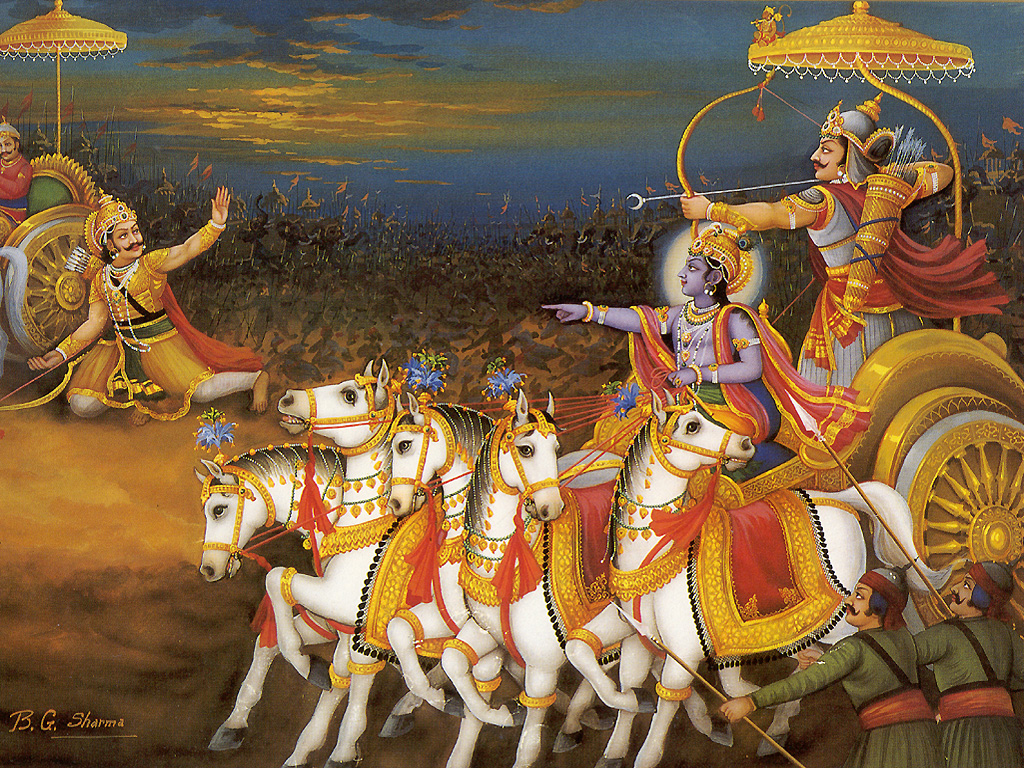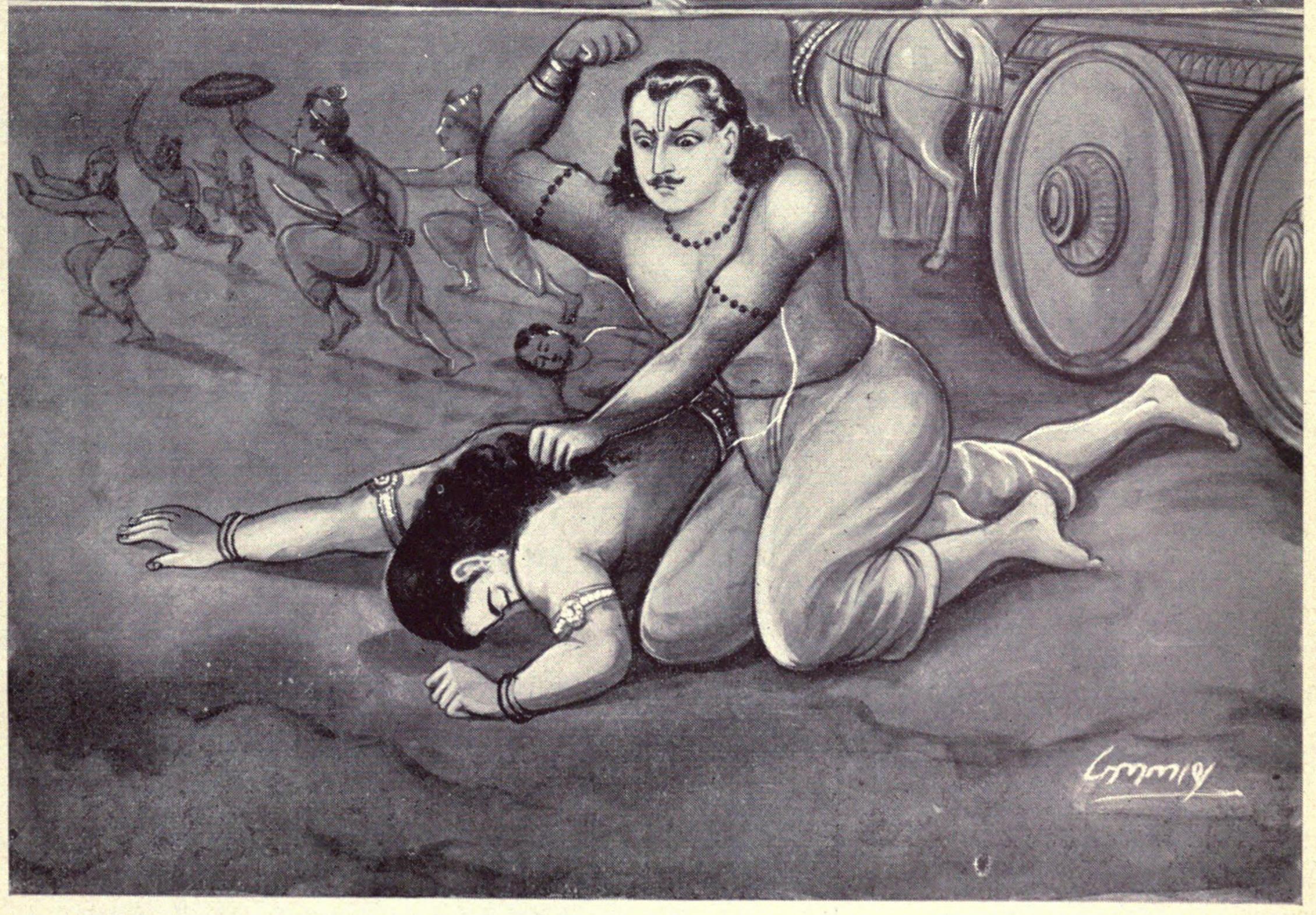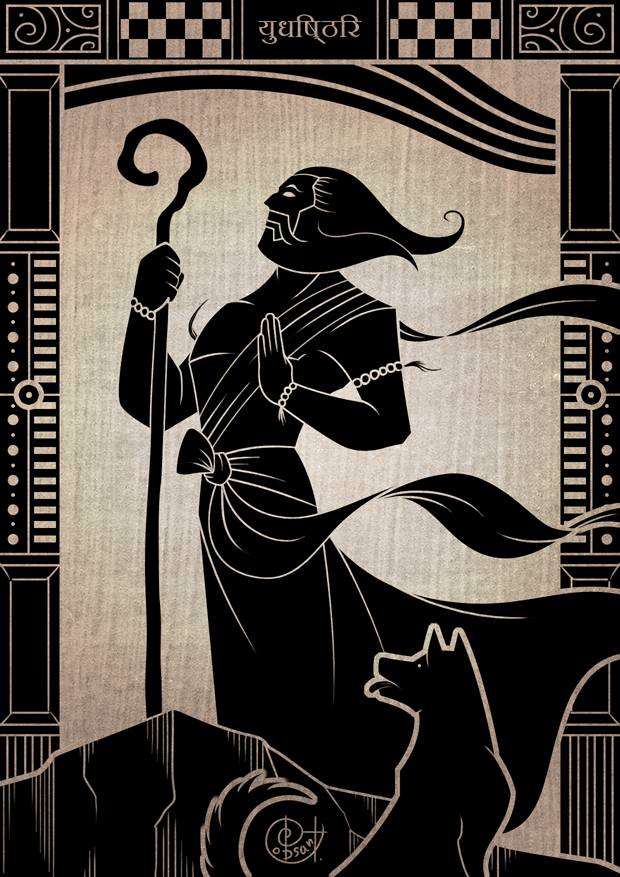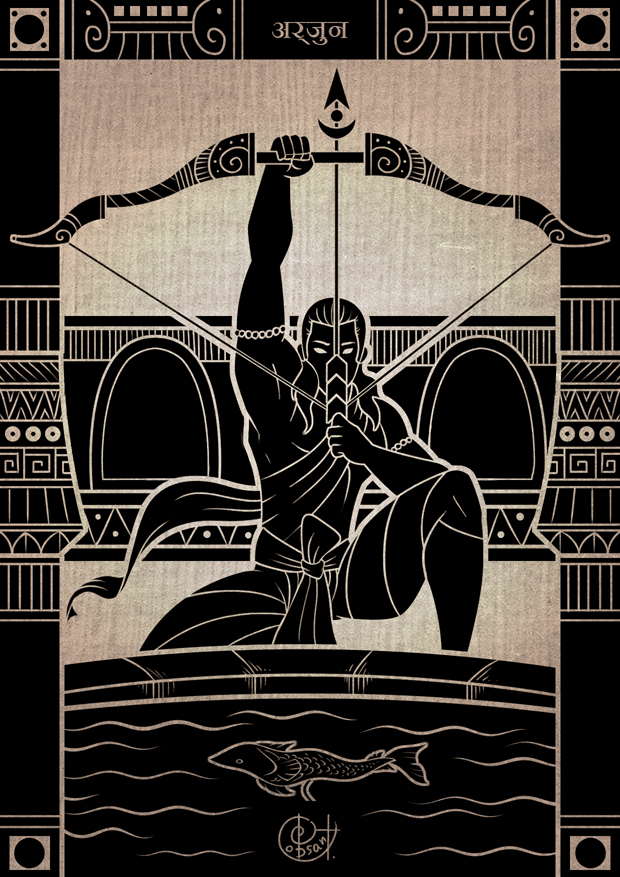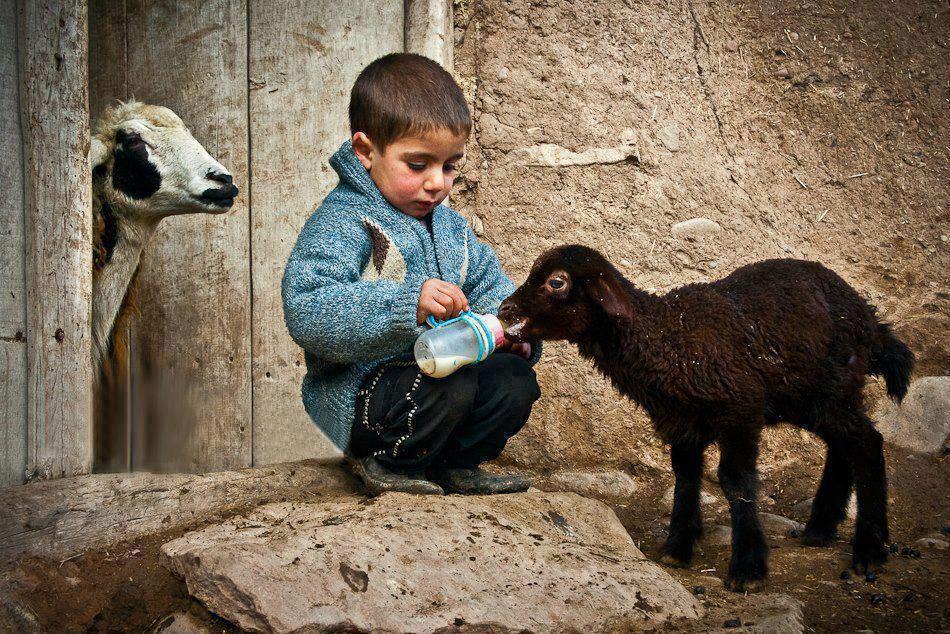Karna Parva is when Karna takes over the Kaurva Army to fight, many below lines are conversation during those time and challenges each character faces. Again, I will thank Abhinav Agarwal for being my guide to narrow things down to understand them.
Below are my favorite quotes from Bibek Debroy’s Mahabharata which Abhinav has reviewed. I had left this personal project unattended for long, since 2013. Mahabharata is my favorite book in Indian mythology, teaches a lot about various relationships, addresses Dharma and Duty. I will keep this as a priority and finish the characters analysis which I started, it would be helpful, If the reader pitches in with their comments, to guide me on better reading versions of Mahabharata.
Quotes Below
“Passion, engagement, skill and policy – these are the means to accomplish objectives.”
[Ashwatthama to Duryodhana , Karna Vadha Parva, Karna Parva, Ch 6]
“Brahmanas are subtle in settling disputes. Kshatriyas are coarser, resulting in victory of defeat. Because of your folly, you have asked for excellent and divine hospitality from Partha. Now be patient and receive what you have asked for from Pandava.”
[Arjuna responds to Ashvatthama , Karna Vadha Parva, Karna Parva, Ch 12]
“If one makes such a person subject to the commands of an inferior one, one commits the crime of confusing the inferior with the superior.”
[Shalya, as Duryodhana tries to convince him of becoming Karna’s charioteer, Karna Vadha Parva, Karna Parva, Ch 23]
“O Maheshvara! We will not be able to bear half of your energy. But with half of our united strength, you can kill the enemies.”
[The gods to Shiva , Karna Vadha Parva, Karna Parva, Ch 24]
“Arjuna is like a cloud among men and you are croaking back at him, like a frog. From its own house, a dog barks at a tiger that is roaming in the forest.”
[Shalya to Karna, morning of day seventeen , Karna Vadha Parva, Karna Parva, Ch 27]
“You have always been devoid of qualities. How will you know the difference between qualities and the lack of qualities?”
[Karna to Shalya , Karna Vadha Parva, Karna Parva, Ch 27]
“Women who are intoxicated by liquor cast off their clothes and dance around. They do not follow restraints and indulge in sexual intercourse, following the dictates of desire. O Madraka! You are the son of one such.”
[Karna to Shalya , Karna Vadha Parva, Karna Parva, Ch 27]
“O crow! There is no doubt that you will fly in one hundred and one different kinds of ways. I will however fly in the only way that all the birds know.”
[Shalya recounting the story of the crow to Karna , Karna Vadha Parva, Karna Parva, Ch 28]
“Everyone is always skilled in detecting another one’s faults. No one knows his own faults, or knowing them, is confounded.”
[Shalya to Karna , Karna Vadha Parva, Karna Parva, Ch 30]
“You possess the strength of the brahmana and are devoted to studying and the task of performing sacrifices. O Kounteya! Do not fight again and do not advance against brave ones.”
[Karna to Yudhishtra , Karna Vadha Parva, Karna Parva, Ch 33]
“He is established in the strength of the brahmana, but he does not possess a great deal of strength of the kshatriya variety.”
[Krishna describes the fighting between Yudhishtra and Karna, Karna Vadha Parva, Karna Parva, Ch 43]
“For the sake of victory, how can one be victorious if one is dead.”
[Arjuna to Krishna, Karna Vadha Parva, Karna Parva, Ch 45]”.”
“Whether I was awake or sleeping, Karna was always in front of me.”
[Yudhishtra to Arjuna, Karna Vadha Parva, Karna Parva, Ch 46]
“A person who is always based on truth is but a child.”
[Krishna to Arjuna, in Yudhishtra’s camp, Karna Vadha Parva, Karna Parva, Ch 49]
“There are many other people who hold that dharma is only what is in the sacred texts. I will not contradict this, but everything is not laid down there.”
[Krishna to Arjuna, in Yudhishtra’s camp, Karna Vadha Parva, Karna Parva, Ch 49]
“Today let Soubala know that my arrows are dice, Gandiva is the box used to throw them and my chariot the spread on which the game is played..”
[Arjuna to Krishna, Karna Vadha Parva, Karna Parva, Ch 52]
“On seeing the two Krishnas together on a single chariot, both fear and valour are generated in my heart.”
[Karna to Shalya, Karna Vadha Parva, Karna Parva, Ch 57]
“He grasped an extremely sharp sword and placed it against the throat of the trembling one. He tore apart the breast of the one who had fallen down on the ground and drank the warm blood. He repeatedly savoured the taste.”
[Bhima kills Duhshasana, Karna Vadha Parva, Karna Parva, Ch 61]
“Those who are learned say that there are four kinds of friends – those who are natural friends,those who are made such through conciliation, those who are earned through riches and those who are subjugated through power. Towards you, the Pandavas are all four.”
[Ashwatthama to Duryodhana after Duhshasana’s death, Karna Vadha Parva, Karna Parva, Ch 64]
“It is fortunate that you remember dharma. Quite often, when they are immersed in hardships, inferior ones censure destiny, but not their evil deeds.”
[Vasudeva to Karna, Karna Vadha Parva, Karna Parva, Ch 67]
http://blog.abhinavagarwal.net/2013/06/mahabharata-quotes-karna-parva.html










